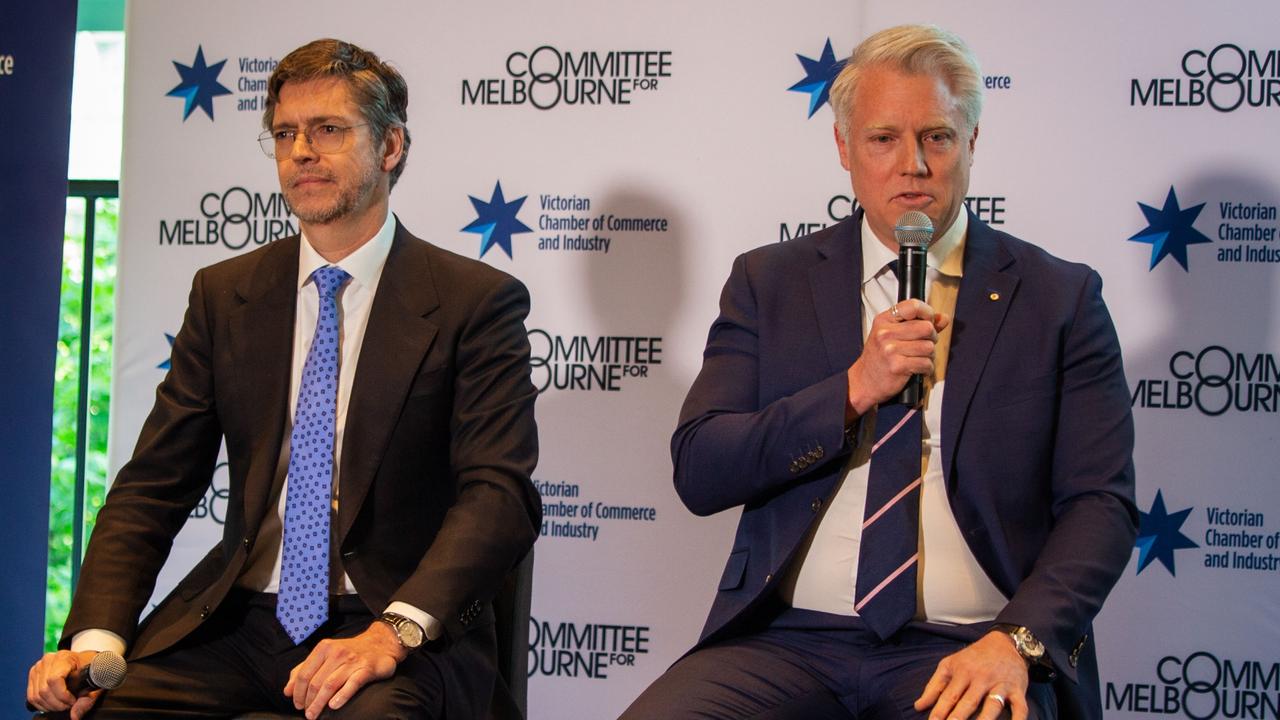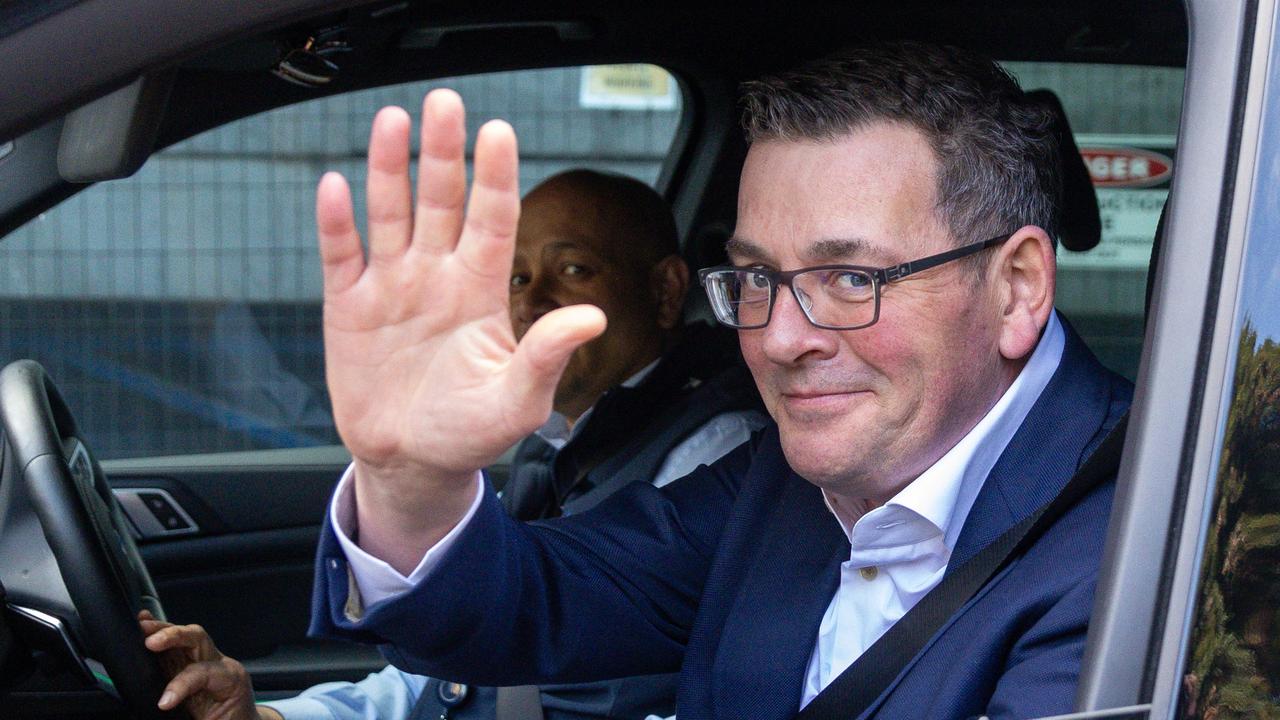Daniel Andrews’ credibility questioned in scathing IBAC report
The Opposition Leader says Dan Andrews should hand over the reins after a corruption probe into his government raised queries about the Premier’s credibility and detailed alarming behaviour by his office and staff.
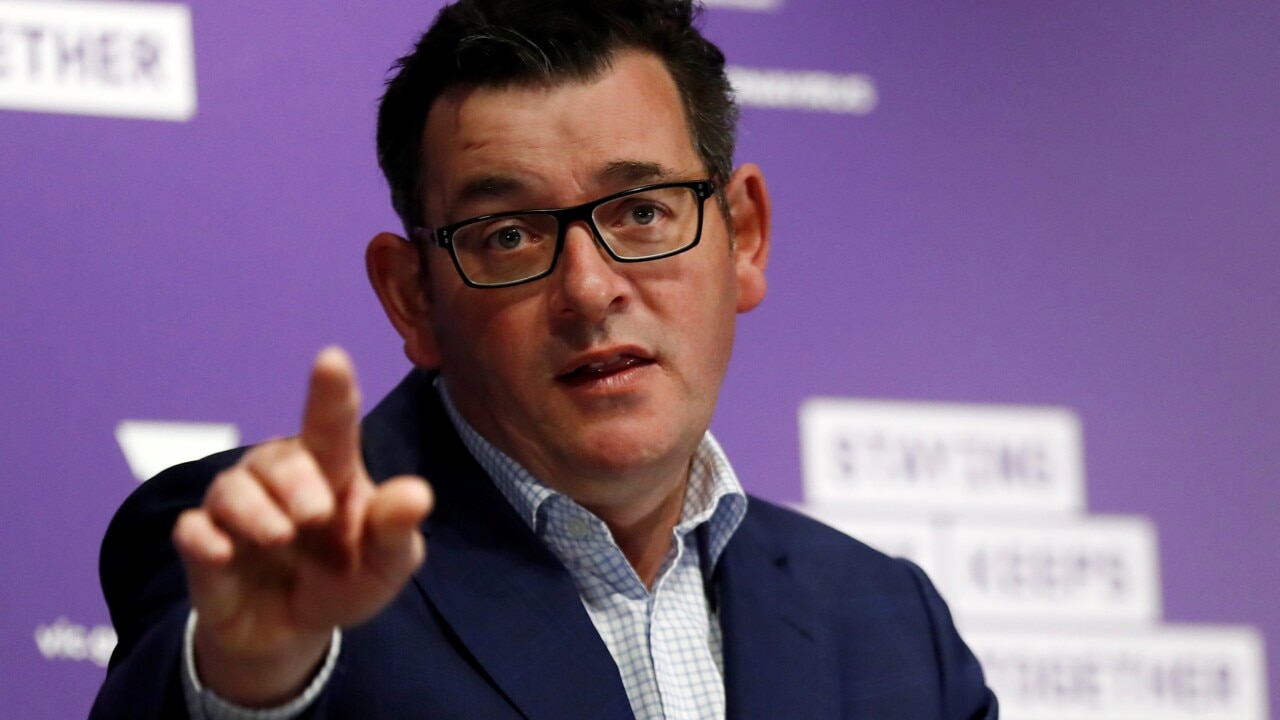
Victoria
Don't miss out on the headlines from Victoria. Followed categories will be added to My News.
Opposition Leader John Pesutto has called on Daniel Andrews to “seriously consider” his position as Premier of Victoria after a major corruption probe into his government.
The Independent Broad-based Anti-corruption Commission has cast doubt over the Premier’s denial of any knowledge of the awarding of $3.4m in grants to the Labor-linked Health Workers Union on the eve of the 2018 election.
Witnesses told IBAC these grants “should never have been awarded” to the union and the watchdog found they were “given privileged access and favourable treatment”.
In a highly critical reflection of Mr Andrews evidence, IBAC also raised serious questions about his inability to recall key events.
On Wednesday, however, the Premier sought to dismiss the report into his government as an “educational report”, despite it detailing alarming behaviour by his office and staff.
Speaking after the release of IBAC’s Operation Daintree report, Mr Andrews said the watchdog made no findings of corruption, and was done under its powers to provide educational advice.
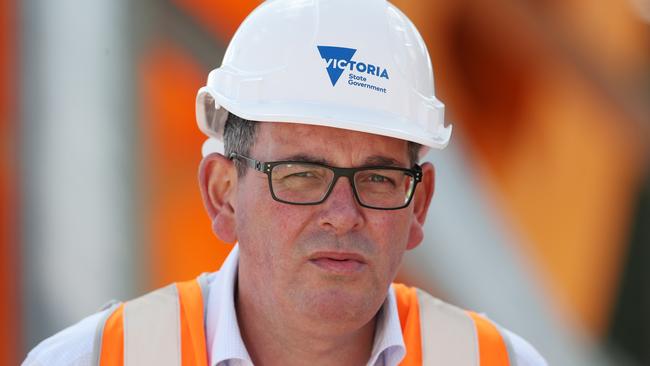
But Mr Pesutto said the Premier should hand the reins to another Labor MP to tackle corruption in Victoria.
“The time has come for the Premier to consider his position,” he said.
“The Premier is the problem and he can’t be the solution.
“He’s the one person in this whole chaotic, dysfunctional mess who can fix it … a government mired in corruption.
“Does he really believe after so many reports, so many scandals, so much chaos, that he’s the best person to tackle the corruption that’s occurred under his own leadership?
“While Daniel Andrews remains in his position, he can’t tackle the corruption that he’s allowed under his leadership.
“If he can’t do it, and it’s clear that he can’t, then the time has come for somebody else in his government to step forward to see if they can do a better job.”
Mr Pesutto said the opposition would look at all 17 recommendations to examine whether the definition of corruption needed to be changed to include conduct that wasn’t deemed to have a level of criminality.
“Let’s be realistic here and recognise what’s happened here is wrong,” he said.
“It’s wrong whether it’s a criminal offence or not.
“Mr Andrews directed his staff to bully public servants. That’s wrong. It doesn’t need to be written in statute.”
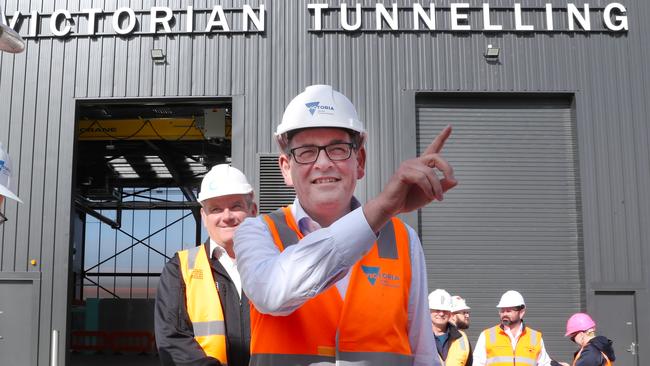
Although the report did not detail the level of corruption to warrant an offence, it did find staffers in Mr Andrews’ office interfered and influenced in the awarding of a contract to a Labor-affiliated union against the public interest.
It also revealed concerning conduct and breaches by ministers and ministerial advisors of public duties and ethical standards.
When asked about these issues, Mr Andrews said he “can’t change what happened four or five years ago”.
“The people involved are either no longer in the parliament or from a staff point of view they don’t work for the government anymore.
“My responsibility is to look at the 17 recommendations in the educational report.
“It’s not a report delivered because wrongdoing was found.”
IBAC’s report did identify misconduct but must fulfil a much higher threshold to prove corruption under the current laws.
Mr Andrews also said he could not recall every conversation he had when asked why he was unable to remember key details about his interactions with the HWU when questioned.
“I freely confess I do not have perfect recall of every single press conference I have ever done,” he said.
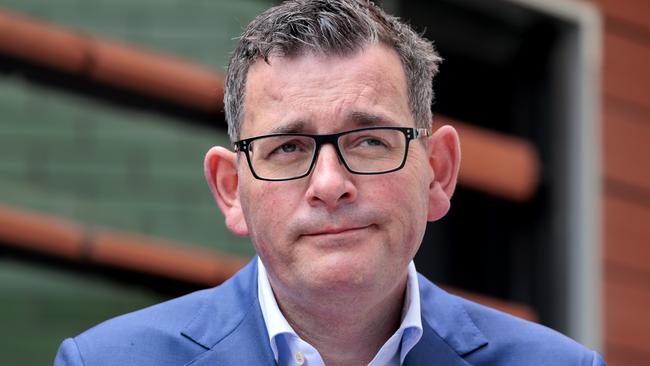
In the report tabled on Wednesday, IBAC made 17 recommendations and called for sweeping changes to limit the powers of ministerial advisers.
It found that in 2018 the Department of Health and Human Services entered into a $1.2m contract with the Health Education Federation – an entity linked to the Health Workers Union – to provide occupational violence and aggression training to health workers.
However the contract was awarded without a competitive tender process and despite concerns by public servants who were improperly pressured by a senior ministerial adviser.
IBAC found the centralisation of power around the Premier’s Private Office (PPO) had allowed ministerial advisers to improperly thwart transparent government.
And it said the “practice of advisers instructing, influencing or applying pressure to public servants is not uncommon”.
“The increasing number, role and influence of ministerial advisers has generated a concomitant risk of them crossing boundaries into the functions of the minister and their departments, and engaging in conduct that is inappropriate at best and corrupt at worst,” it said.
One lot of funding was announced the day before the government went into caretaker mode, and Mr Andrews made a second larger commitment days before the 2018 election.
IBAC pointed to multiple times in the Premier’s statements where he appeared to contradict his own evidence.
It included the Premier claiming he had no recollection of discussions with HWU boss Diana Asmar.
But he later admitted his memory was “faulty”.
IBAC found that despite his inability to recall key events, it was “highly likely” Mr Andrews was aware of a deal struck by his advisers to award grants to the HWU.
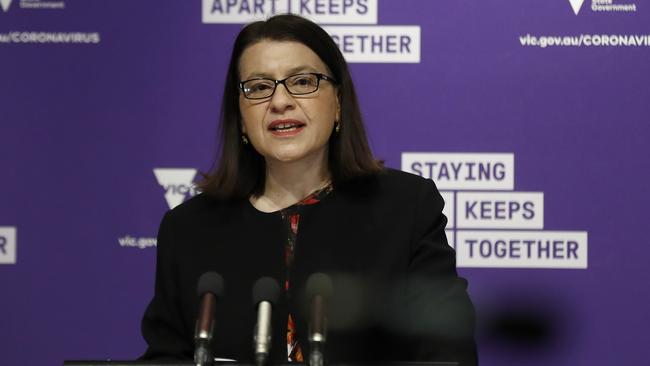
Former ministers told IBAC that power was centralised through the Premier’s office, which made the decision to award the grants.
Former health minister Jenny Mikakos told investigators the Premier’s office had ultimate control over the work of government and interfered with ministerial discretion.
She said she believed there to be a “clear commitment from the Premier’s office’ that the HEF would be awarded the election commitment contract”.
“You will find across governments that ministers’ offices direct departments on the implementation of policies and election commitments … in many ways,’ she said.
“The current Victorian government is a very centralised government where the PPO has its tentacles everywhere … There is constant tension between ministers’ offices and the (PPO).”
Ms Mikakos – who abruptly resigned in the midst of the global coronavirus pandemic after being infuriated by evidence given by Mr Andrews at the hotel quarantine inquiry – said the PPO acted as government “gatekeepers”.
The view was echoed by former Attorney-General Jill Hennessy who said there was a “power differential” between ministerial advisers and PPO staff.
“If a PPO adviser told a ministerial office adviser … that something had to happen … they would usually win the day,” she said.
Latest government data showed that in 2021, 286 were employed across all ministerial portfolios.
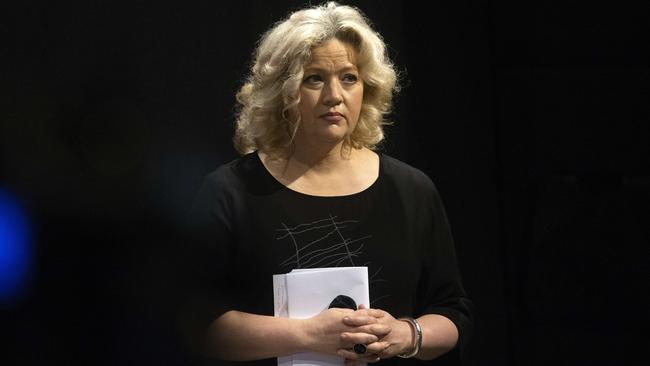
“Such growth in a part of government that is nearly invisible in formal accountability terms raises many questions about influence and transparency at the heart of government,” the report found.
IBAC was also critical of the Premier’s decision to delegate key responsibilities to his chief of staff, saying it did not absolve him of any responsibility.
IBAC acting commissioner Stephen Farrow said the investigation – one of four understood to have involved the Premier – revealed breaches of duties and obligations of ministers, ministerial advisers and senior public servants.
“Our investigation showed that the HWU was given privileged access and favourable treatment in its access to ministerial offices,” he said.
“Advisers in the Premier’s Private Office and the Minister for Health’s office also interfered in the management of the HEF contract to obstruct consideration of its termination and to ensure it continued.
“The DHHS awarded the contract to HEF without a competitive procurement process due to senior staff in the department believing it was the minister’s and government’s preference, and because of ongoing pressure from both the Minister for Health’s Adviser and secretary of the union.
“This conduct by senior public servants falls short of the required Victorian public sector standards.”
IBAC has recommended the government formally respond to the report by October 31.
Throughout the process, staff raised serious concerns about the contract and did not think HEF was capable of delivering the scheme.
“From the outset, it was apparent to DHHS officers that HEF was not equipped to deliver the training,” the report found.
“Many of the risks that DHHS staff had identified during the procurement process came to fruition, resulting in delays and disputes.”
But IBAC found that staff felt pressured by the minister’s office and senior executives to approve their bid despite their misgivings.
At one point in 2018 the department debated opening the contract to other bidders and a brief was drafted to send to Ms Hennessy where she could choose whether to use a competitive process.
However her chief of staff intervened before the brief was sent and IBAC said it appeared the minister’s office had pushed the decision back on to the department.
“It is highly likely that the minister’s office thought it undesirable that the minister make a decision either to approve a competitive tender, which would upset the HWU, or give a direct grant to HEF, which would carry an obvious political risk for the minister.”
On Wednesday, the Greens called for all ministerial diaries to be made public, arguing such a move would let Victorians see how government decisions were being influenced.
Acting Greens leader Tim Read said IBAC’s latest report “laid bare the need to bring our integrity standards up to scratch”.
“Victoria could be a leader on integrity in our country, and instead we’re a laggard,” Dr Read said.
Queensland, New South Wales, and the ACT release ministerial diaries on a monthly or quarterly basis, providing a record of meetings between ministers.
Dr Read said there was also a need to legislate codes of conducts for lobbyists, Ministers and their staff.
“Ministers are responsible for the actions of their staff, who are often following orders, and their intrusion into the public service shown here was the responsibility of those Ministers and the Premier,” he said.
“It’s embarrassing that IBAC feels Labor’s ministers need to be told the meaning of ministerial accountability, but adding this to their Code of Conduct should stop the gradual erosion of this concept.”
More Coverage
Originally published as Daniel Andrews’ credibility questioned in scathing IBAC report



